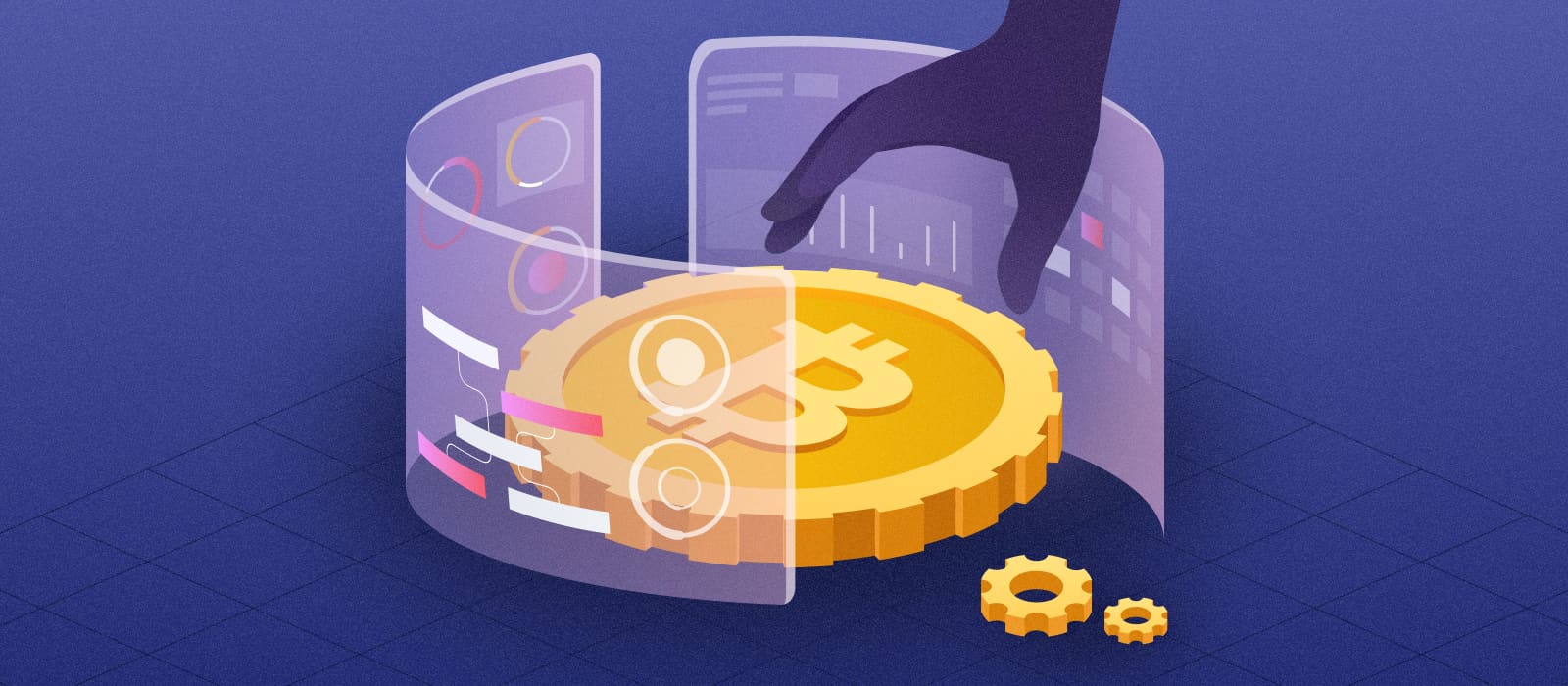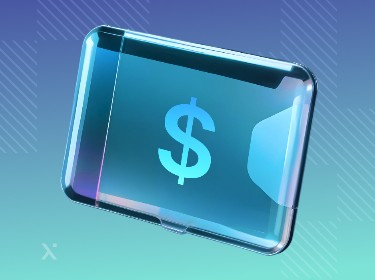There’s a variety of token types that you can implement in your blockchain project. The question is: why do you even need a token and how do you create one?
Blockchain is continuing to conquer different industries and is moving towards mass adoption — it is estimated that the global blockchain market will be worth $162.84 billion by 2027.
Whether you’re embracing blockchain to upgrade existing business processes or to build an entirely new project based on the technology, you will inevitably wonder how to create a crypto token and what kinds are generally out there.
A payment token, for example, is one of them. We implemented this type of token into one of our client’s projects, Savage. Integrating the SAVG tokens into the platform simplifies payment processes and enriches the overall user experience.
In this article we will discuss many other token types and analyze their benefits for businesses, customers, and altcoin development services. In addition to this, we will provide you with valuable tips and a token development strategy.
Explore our NFT development services to learn how to implement these tokens into your project and reap tangible benefits
This article is part of our larger series dedicated to Tokenomics. To explore this topic in greater detail, here’s the list of articles we recommend:
What Is Tokenomics? An Introduction to the Token Economy and Its Vital Components
5 Steps to Develop an Efficient Token Economy for Crypto Games
What Is Token Distribution: Overview of the Most Effective Methods
7 Steps for Designing Successful Project Tokenomics
What types of crypto token are out there?
![]()
There are 5 key types of token, each fulfilling its own function: payment tokens, stablecoins, utility tokens, security tokens, and non-fungible tokens. Let’s take a look at their unique features.
Payment tokens
Payment tokens are used for online payments and are more often known by the name “crypto currencies”. These tokens allow to conduct peer-to-peer transactions, excluding any intermediaries. The most widely-used payment tokens include Bitcoin, Ether, and BNB.
Stablecoins
When backed by an external reference such as fiat money, precious metals, industrial metals, or even other crypto currencies, payment tokens are called stablecoins. They are less volatile than traditional crypto currencies. Tether (USDT), USD Coin (USDC), and Binance USD (BUSD) are among the top stablecoins.
Utility tokens
Utility tokens provide access to a product or service offered by the token provider. They can also be used for staking and liquidity mining, allowing users to earn interest.
Besides this, utility tokens often serve as incentives and are given to users in exchange for interacting with the platform. If it’s a DAO development solution (Decentralized Autonomous Organization), these tokens can be used in governing processes and allow users to vote on certain issues.
Security tokens
Security tokens are digital investment contracts representing ownership of physical or digital assets such as property, bonds, stocks, and real estate. These tokens are regulated by the government and pass the Howey Test.
Non-fungible tokens
Non-fungible tokens, or NFTs, are digital representations of a one-of-a-kind item, either real or virtual, recorded on a blockchain. Almost anything can be turned into an NFT, from digital art and music to immovables. Each token has a unique set of characteristics and can’t be replaced by another.
Why do you need to create a crypto token? Overview of token benefits
![]()
By creating a native token, your business gains the following opportunities:
- Leveled-up user acquisition — native crypto tokens are a great way to attract users to the project. For example, users can get tokens as rewards for participating in the project’s activities or as a part of your loyalty program.
- Capital raising — business tokens allow you to raise funds, for example, via Security Token Offering (STO).
- Higher liquidity — tokens increase the liquidity of your goods and services by making them accessible to buyers from any corner of the world. Also, fractional tokenization allows you to offer shares of a large-value item, which contributes to higher marketability.
- Decentralization — in contrast to fiat currencies which are strictly monitored by financial institutions, crypto tokens are not controlled by any central authority, thus allowing to avoid middlemen, lots of paperwork, and extra fees.
And in the meantime, you will be able to offer your customers advantages such as:
- Streamlined international transactions — tokens can be traded globally in a matter of seconds without any middlemen involved.
- Enhanced security — token operations are tamper-proof since they reside on the blockchain and are operated by smart contracts.
- Additional revenue stream — tokens can be used for liquidity mining. This way a user stakes a number of tokens and earns interest on condition that they don’t withdraw the tokens before the staking time is over.
- Greater accessibility — anyone can make token transactions: while the user complies with the platform requirements, no authority can suppress them.
How to create a crypto token in 5 steps?
![]()
To embark on the journey of crypto token development, it’s essential to follow these key steps:
Step 1. Define token type
Choose the type of crypto token depending on your project’s functionality and goals. For example, opt for utility tokens if your platform offers goods or services, or NFTs if you are building a metaverse-related platform.
Step 2. Define token properties
Determine token parameters such as total supply, name, acronym, digits, and symbol. Then decide on the blockchain and token standard. The majority of tokens are built on Ethereum, with the most common token standards being ERC-20 (for fungible tokens) and ERC-721 (for non-fungible tokens).
Still not sure which blockchain platform to pick for your project? Our blockchain consultants are always ready to help you make the right choice
Step 3. Develop smart contracts
To ensure the seamless operation of a crypto token, you need to engage in smart contract development. Smart contracts are blockchain programs designed to autonomously execute predefined actions, ensuring the token’s functionality. They will prohibit any tampering with the token and ensure fair distribution and usage.
Step 4. Run tests
Make sure there are no flaws in the way your crypto tokens function by using testnets such as Rinkeby (Ethereum), Fuji (Avalanche), or Rococo (Polkadot). Testnets will allow you to imitate real token use cases and detect possible vulnerabilities.
Step 5. Deploy tokens to the mainnet
Once everything runs smoothly, you can take your tokens to the mainnet and offer them to customers. When the tokens are launched, you’ll need to collect user feedback and provide timely adjustments and support.
As you can see, token development is a complex process, requiring not only in-depth knowledge of blockchain technology but also design and marketing skills — an eye-catching token design and a cool name is of no less importance than robust functioning, especially at the initial stage. So make sure that you have a team of seasoned blockchain specialists capable of handling all aspects of token development.
Don’t miss our guide on how to design a successful project tokenomics
Token development: PixelPlex success stories
Our custom blockchain development team has gained solid experience working out robust tokenomics for blockchain projects of varying complexity. We will take LaneAxis, Proleague, and Savage as examples and will show you how these solutions from totally different industries leverage crypto tokens to their advantage.
LaneAxis
LaneAxis is a logistics and transportation company that strives to modernize a shipper-to-carrier direct freight network. The company turned to us to get professional advice on how to implement blockchain technology so that it would help to streamline logistics processes and open up new monetization opportunities.
After thorough research we presented a comprehensive list of blockchain-based solutions including the project’s tokenomics. We suggested introducing two tokens: a Circle USDC stablecoin and an AXIS utility token.
With the stablecoin, users can get access to additional platform functionality such as purchasing loads, while the AXIS token allows users to participate in liquidity mining. In addition, users can swap AXIS and Circle USDS tokens. With each swap, there is a 1% commission for the platform.
Proleague
Proleague is a blockchain-based esports startup aiming to help non-professional gamers to make money through minting and trading. Our blockchain experts delivered an in-depth roadmap for Proleague development from the platform’s functionality and key components to user flows. Of course, tokenomics was one of the most vital aspects.
We suggested creating two types of token: a Proleague utility token and NFTs. The utility token opens access to the platform’s services. Users can obtain tokens in various ways: gaining the platform’s achievements, streaming, hosting tournaments, and more.
Proleague utility tokens also serve as government tokens and allow users to have a vote on the platform’s processes.
What’s more, users are able to mint NFTs of game highlights, players’ awards and achievements, tournament scoreboards, and titles.
Savage
Savage is an innovative Polygon-based NFT marketplace developed by PixelPlex for Savage Stock Media. This platform is specifically tailored for video creators, offering a unique space to trade high-resolution videos as NFTs.
Our role encompassed comprehensive development, from conceptualization to implementation, with a significant focus on constructing an effective tokenomics model.
Central to the marketplace’s success is the introduction of the Savage token (SAVG), a utility token designed in collaboration with the client. The creation of SAVG serves multiple purposes:
- It boosts Savage Stock Media’s revenue
- Enhances brand recognition
- Fosters user loyalty through additional features like discounts and bonuses
Our blockchain consultants meticulously crafted both demand and supply mechanisms for a balanced tokenomics system. Demand is driven by charging a percentage on NFT video sales, while supply mechanisms include filmmaker rewards, token trading, token sales, and incentivized discounts for using SAVG.
The marketplace also offers diverse payment options, including cryptocurrencies, credit cards, and the Savage token that we have introduced.
Want to take a look at more awesome blockchain projects? We have lots of them!
Conclusion
There is a wide choice of crypto tokens that can complement and upgrade your blockchain project and bring tangible benefits such as decentralization, higher liquidity, and enhanced security. Native tokens also make it easier to raise funds for further platform development.
However, to launch a successful crypto token, you need to have a clear understanding of where it fits within your ecosystem and what possibilities it will unlock for you and your users.
Luckily we have just the right tokenomics consulting and development experts who can guide you through all the steps of token development, from preparing the roadmap to integrating the tokens into your solution.
Drop us a line and let’s discuss how we can be of service.




